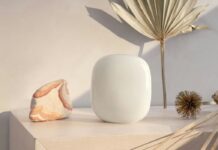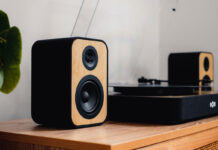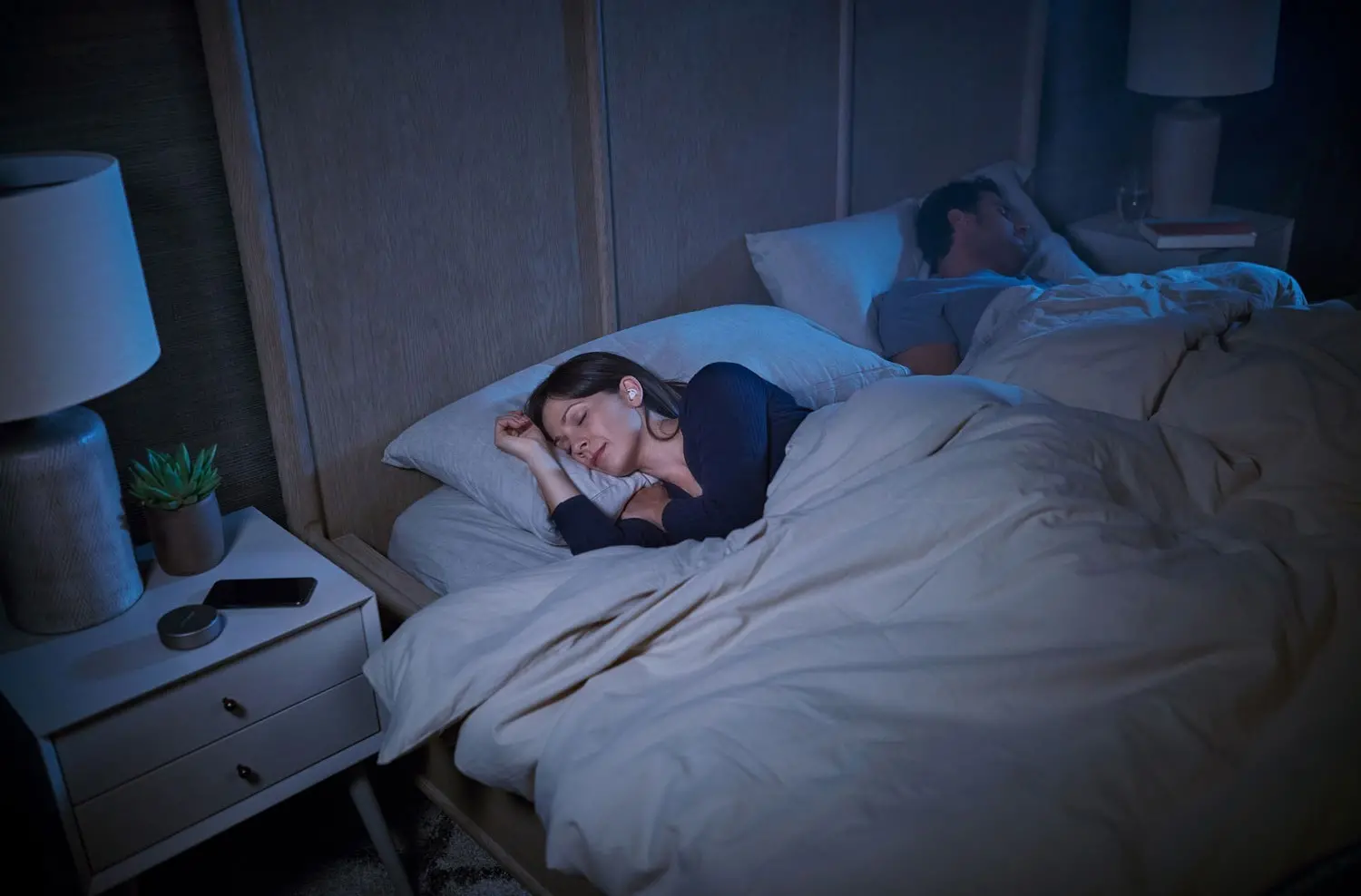
I love to sleep. It’s a hobby of mine. That probably explains why I find sleep tech so interesting. Sleep plays such a critical role in our overall well-being. Nothing—and I mean nothing—can replace a good night’s sleep. But what do you do when you have trouble sleeping? Let’s explore the different types of sleep technology to help you fall and stay asleep.
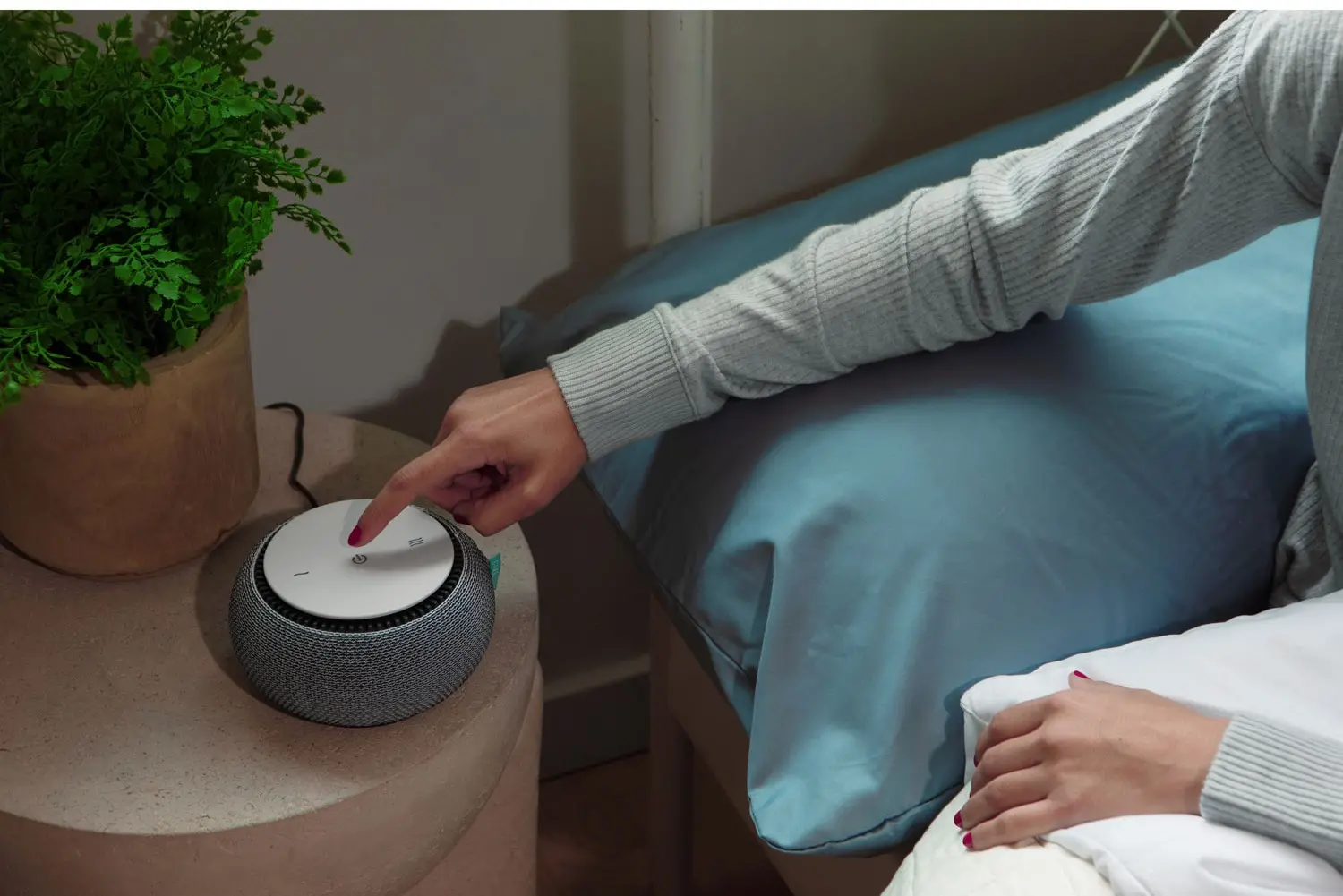
White noise machines to relax the mind
I’m no sleep expert but I have learned a thing or two from my own personal experience. Having a consistent ritual helps people fall asleep faster. But sometimes, you can’t control your environment. For example, some people might be distracted from background noise. This could be street traffic, loud neighbours, or a snoring partner. Others may find dead silence distracting.
In both cases, consider white noise and sound machines. These devices look like an alarm clock but produce white noise and fan sounds. White noise contains all the frequencies in equal measure. It gives the brain something to focus on as you fall asleep. Parents use it to help newborns and young children fall asleep. I bring a white noise machine with me during travel. No matter the environment, it provides a sense of familiarity to my nightime routine. If I don’t have my white noise machine, I’ll use a fan instead. Having a consistent sound in the room is a great tip to help you fall asleep faster.
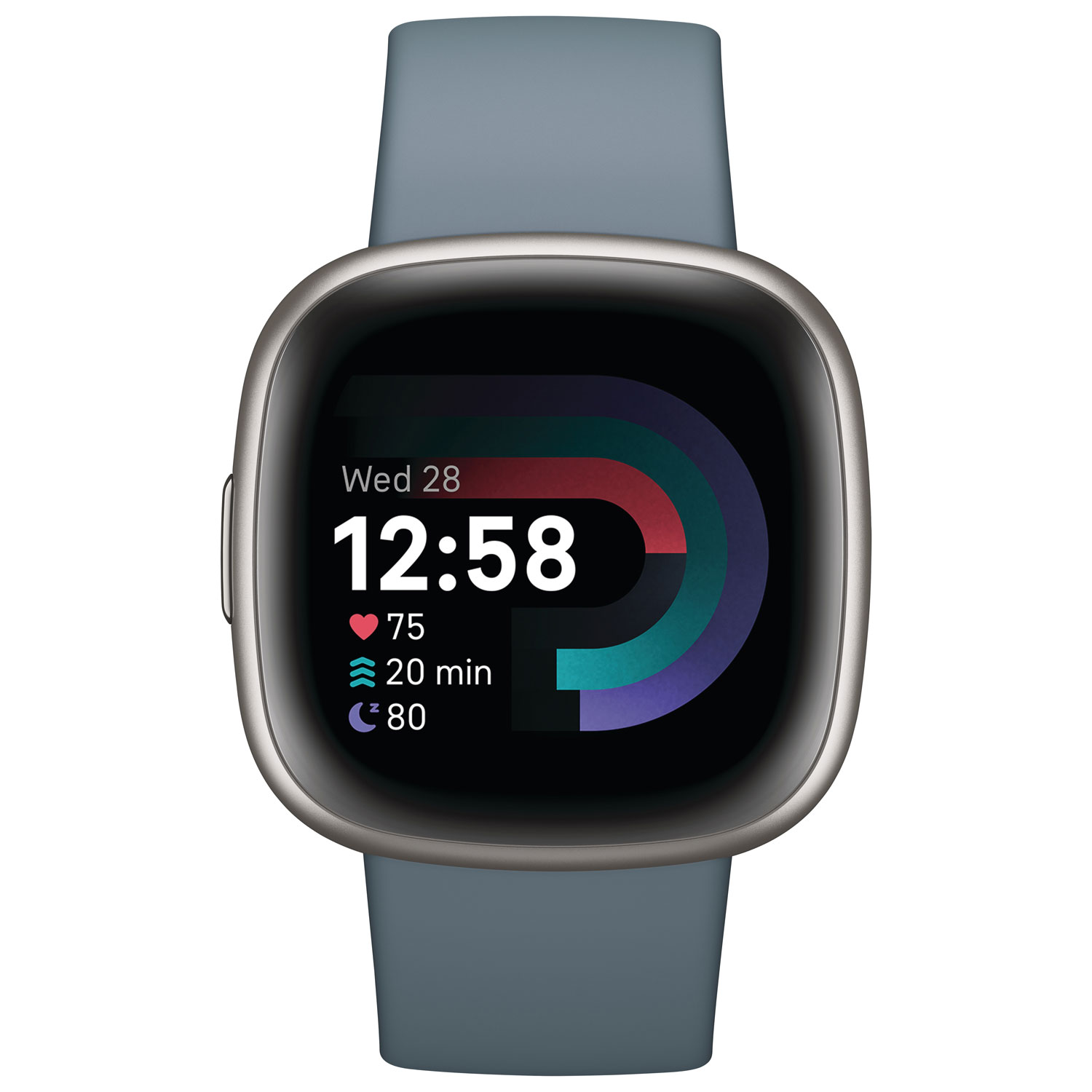
Sleep trackers to assess quality and duration
Many wearable Technology like smartwatches offer sleep tracking. They monitor and analyze sleeping cycles and sync that data to a smartphone app. Here you can look at your sleeping quality daily, weekly, and over time. This provides valuable insight including when you go to bed, when you wake up, and the time spent in the different stages of rest.
Most experts recommend people get 7-8 hours of shuteye every night. However, we are all different. A good tip to see how much sleep you require is to wake up without an alarm clock. Then, see how many hours you got that night with your sleep tracker. For me, I found that I typically need about 6.5-7 hours a night. That helps me determine when I should go to bed based on when I want to get up. By using the data from sleep trackers, you can set an alarm, know when you should be in bed, and naturally wake up before it goes off.
Sleep earbuds to avoid distractions
Let’s face it, it’s hard to sleep in noisy environments. For many people, it’s the snoring from their spouse. Rather than rest in separate rooms, consider getting a pair of sleep earbuds. These are specialized earphones that tune out the outside world. They are shaped to fit securely within the ear canal to minimize sound leakage.
Popular models come with corresponding apps with additional aids. These can range from relaxation tracks like rain, and ocean waves to guided meditations. In addition many contain white and pink noises to help disrupt background noises. I recommend these earbuds to anyone with a partner who snores. Who knows, it might save your marriage.
Snoring remedies to sleep better
If sleep earbuds aren’t for you, thankfully, there are a range of snoring remedies available. For example, nasal dilators are adhesive strips that reduce nasal congestion. These are a good option for people with constant nasal blockage. Other snorers may need an oral appliance. Sometimes called snore guards, these devices work by repositioning the lower jaw slightly forward. This helps to open the airway and reduce snoring. I’ve never tried this before but it sounds like wearing a retainer.
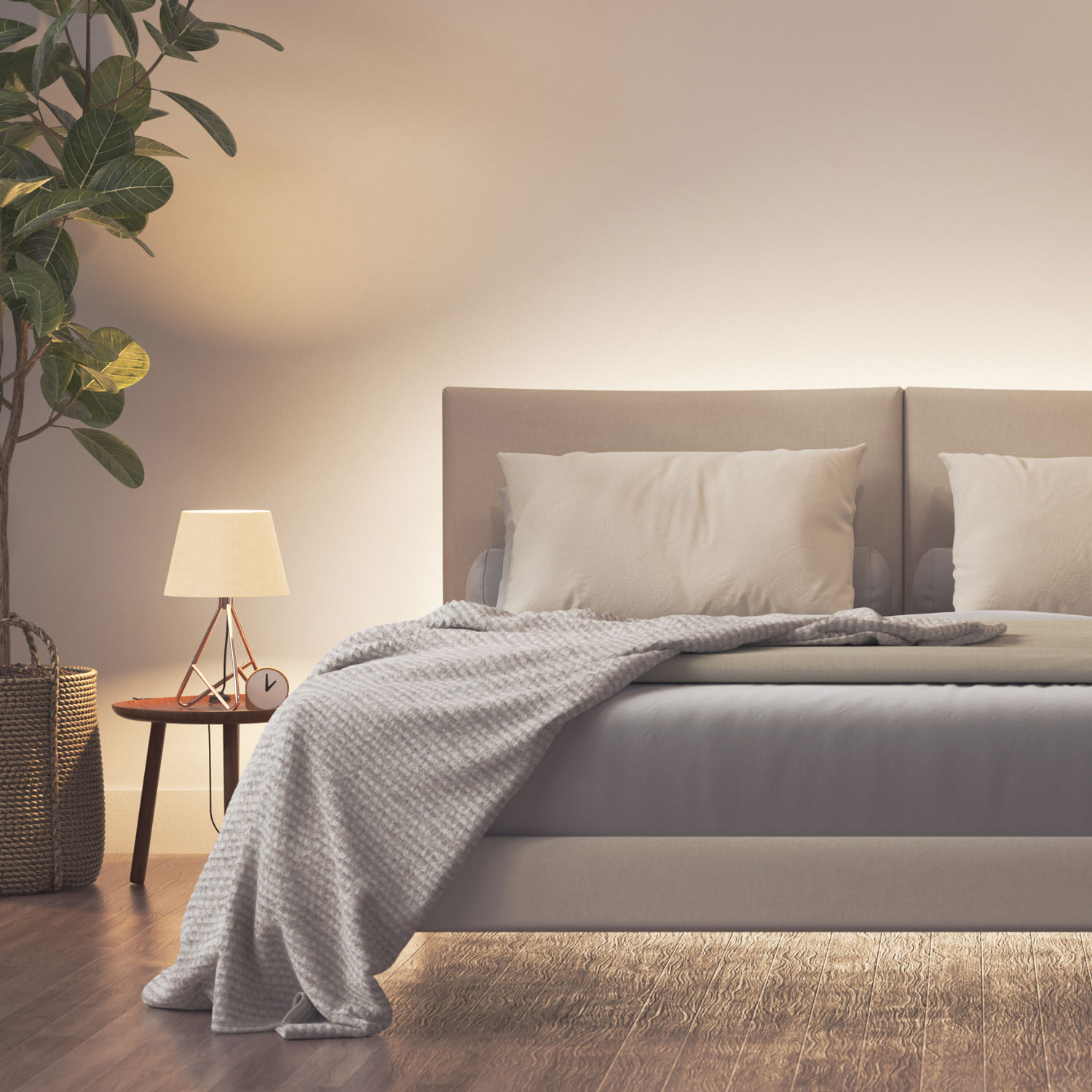
Smart lights to prevent circadian disruptions
The one sleep aid that has done the most for me is smart lights. People don’t realize the effect light has on our sleep. The trick is to schedule smart lights to mimic natural light patterns. Not only does this help me wake up, it helps put my body to sleep at night.
Some smart lights have a circadian feature. This synchronizes the 24-hour light-dark cycle with smart lights. When the sun rises, the smart lights gradually turn on with the same colour temperature of the sun. As the sun sets in the evening, the lights turn to a more orange glow. This light pattern helps regulate our internal clock.
Smart thermostat for the perfect sleeping room temperature
Did you know the optimal room temperature for sleep is 18.3 degrees Celsius? With smart thermostats, you can program that temperature at night. This creates the optimal nighttime environment and should be part of everyone’s routine. Smart thermostats provide precise control over the room temperature, especially throughout the seasons. You can set personalized temperatures preferences for different times of the day. For example, I prefer 21 degrees Celsius during the day. However, at night my smart thermostat is programmed to go down to 18 degrees about an hour after I usually go to bed.
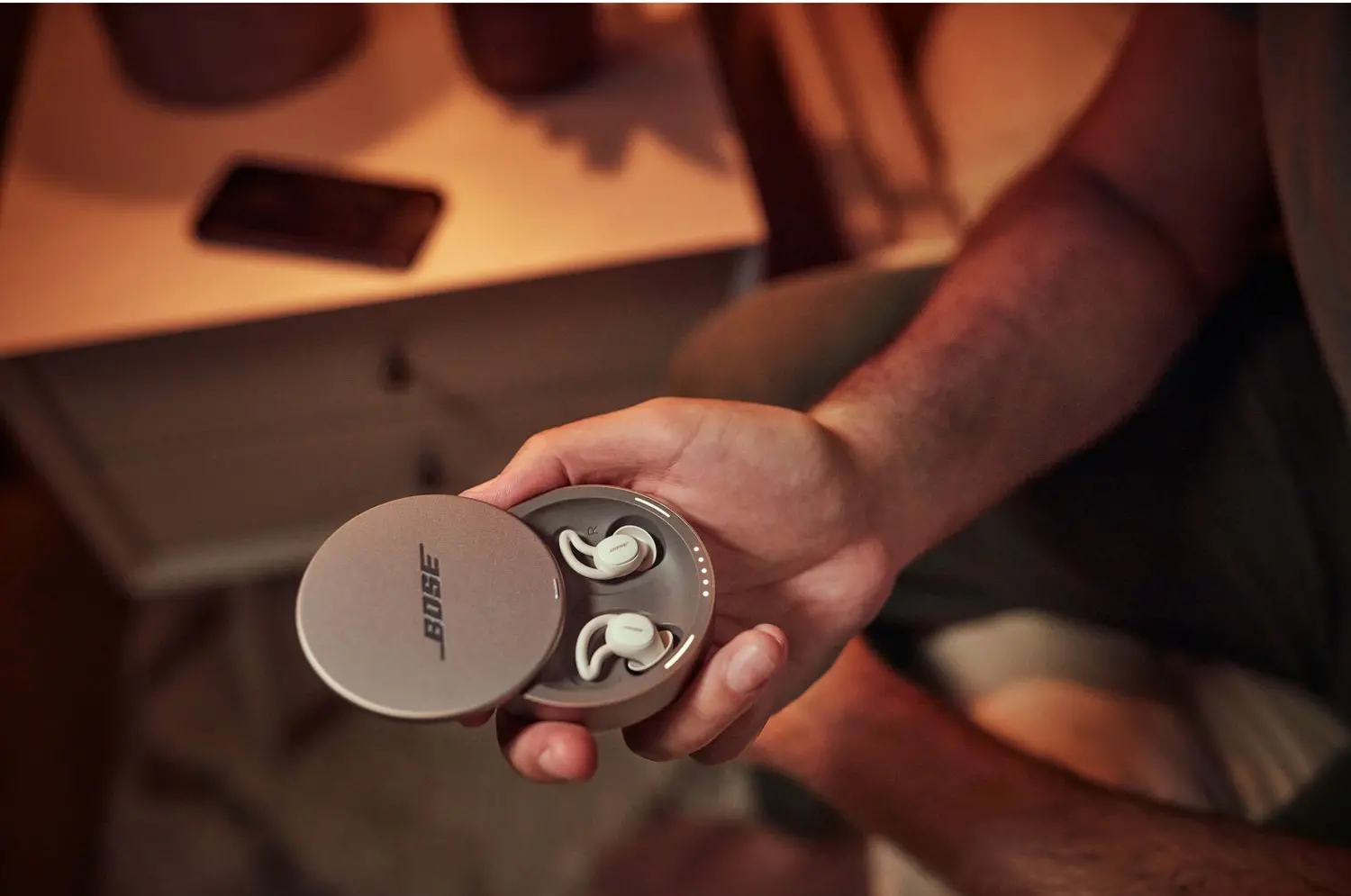
Sleep technology can help you get more rest
Nothing is more important to overall health than a good night of shuteye. The truth is, many people suffer from sleeping issues. Some people can’t fall asleep, while others can’t stay asleep. Whatever issue you have, rest assured there are a host of sleep technology products to consider.
White noise machines are a great addition to any bedtime routine. Take them when you travel to help you fall asleep in different environments. Sleep trackers tell how much rest you naturally need. Use them to track your bedtime routine over days, weeks, and months. Sleep earbuds are a great choice for people who rest in noisy environments. If your partner snores, get them some snoring remedies. Finally, smart lights and smart thermostats create the optimal resting environment in your room. If you have issues falling asleep, rest assure Best Buy has you covered for sleep tech.

